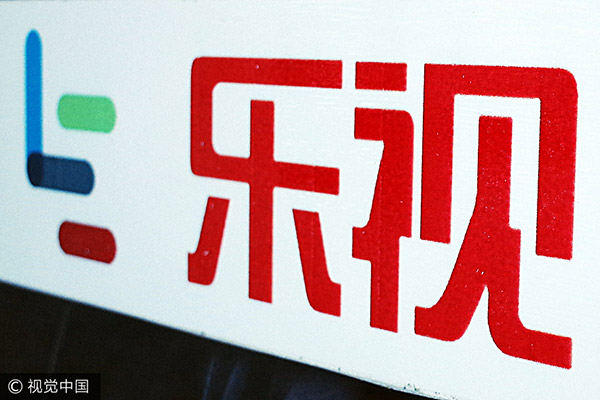Leshi Holding, LeTV Mobile put on top court's default blacklist
 |
|
[Photo/VCG] |
Leshi Holding (Beijing) Co and LeTV Mobile and Intelligent Information Technology (Beijing) Corporation were put on China's highest level credit default blacklist on Sept 7, Beijing Youth Daily reported.
The blacklist was made available on shixin.court.gov.cn, a site covering the implementation of rulings by the Supreme People's Court.
In one lawsuit, which was accepted on March 21 and involved both Leshi Holding and LeTV Mobile, the No. 2 Intermediate People's Court of Tianjin ruled that the companies should make payments worth over 57.16 million yuan ($8.76 million), but neither implemented the ruling.
Both companies "have the ability to honor obligations but refuse to do so," said the court.
In another case, accepted in April, Leshi Holding was obliged to pay over 50.08 million yuan, according to the court ruling. But it had not implemented the ruling, either.
Information on shixin.court.gov.cn showed the head of Leshi Holding was Jia Yueting, and that of LeTV Mobile, Jia Yuemin.
Under a rule issued by the top court in July 2015, courts of execution could report blacklisted parties to government departments, financial regulatory bodies, financial institutions, relevant administrations and industry associations, which might issue credit warnings or render punishments to the blacklisted parties according to law regarding government procurement, tendering and bidding, administrative approval, government support, finance and credit, market access, and qualification accreditation.
Courts might also issue orders to curb possible high consumption by blacklisted parties. For instance, high-end travel modes, star hotels, night clubs and games of golf were all forbidden, while purchase of real estate projects, or new construction, expansion and high-end decoration of houses were also banned. Parties should not buy vehicles nonessential for business operations, take vacations, send children to expensive private schools, or buy costly insurance and wealth management products.









